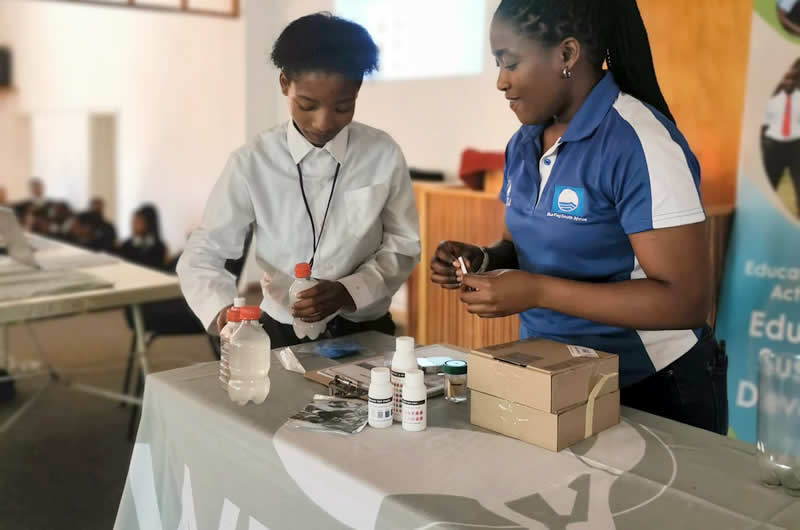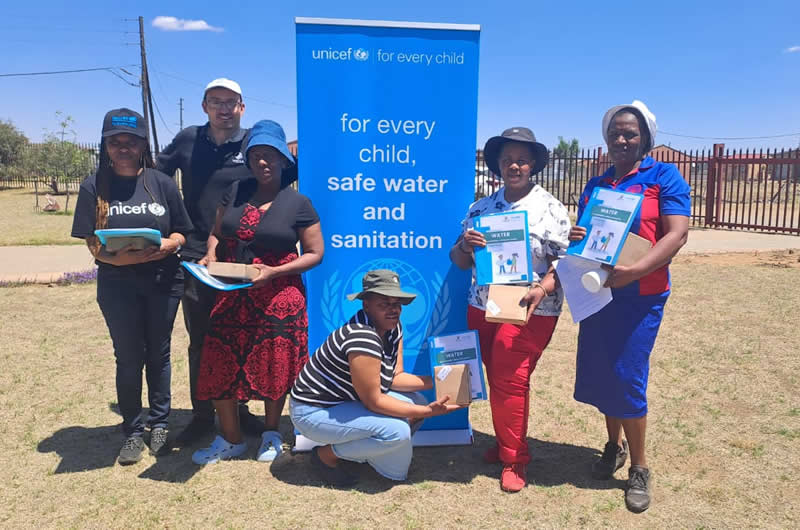As South Africa faces increasing water shortages and water quality challenges, WESSA has partnered with the United Nations Children’s Fund (UNICEF) on the Youth Leading in Water Resilience Project. Part of the Water, Sanitation, and Hygiene (WASH) programme, this initiative empowers young people in South Africa to tackle one of the nation’s most urgent challenges: water security.
Running from October 2024 to March 2025, the programme will engage 29 000 learners between the ages of 5 and 19 across 30 schools in Gauteng, the Northern Cape, KwaZulu-Natal, and the Free State. Over 4 000 unemployed youth – mainly from rural and peri-urban areas – are being trained to lead water resilience efforts. This extensive outreach is designed to create a ripple effect, deepening community engagement in tackling South Africa’s urgent water challenges.
The involvement of community members, including government officials, further amplifies its impact. By training both local leaders and government representatives, the project aims to embed sustainable water practices within the structures that oversee the country’s water systems, fostering collaboration and action across sectors to ensure that water monitoring becomes a shared responsibility.

Water quality testing at Okiep Hoerskool.
Water quality testing
The initiative focuses on water quality monitoring, capacity building, and community-based solutions, aiming to build a generation of informed and empowered water custodians. Through the project, youth and community members play an integral role in community-based water monitoring, while working to ensure that clean drinking water is accessible and that water systems are maintained effectively. By encouraging a spirit of collaboration, UNICEF and WESSA aim to empower children, youth and their communities to prioritise water resilience.
“Water is the foundation of life and a resource under tremendous strain in our country. This project aims to empower children and young people by providing them with the skills, resources, and knowledge to monitor water quality in their schools and communities. Participants will gain hands-on experience in identifying and addressing water-related issues, as well as learn how to advocate for sustainable water management practices,” says Cindy-Lee Cloete, WESSA’s CEO.
These sentiments are echoed by Christine Muhigana, UNICEF South Africa Representative who notes that “empowering children and young people to take ownership of water resilience is crucial for South Africa’s future. Through this programme, we are cultivating a generation of informed and motivated water custodians who will champion sustainable water management practices and ensure a water-secure future for all.”
Water warriors
The support of WaterCAN’s data management system ensures that water quality insights are accurately stored, analysed, and leveraged to make impactful decisions. Ferrial Adams, Executive Manager at WaterCAN, emphasises the importance of the data-driven approach, adding, “by engaging children and youth through citizen science, the initiative deepens their understanding of water issues and encourages sustainable practices. This effort not only raises awareness but also empowers the next generation to take proactive steps in preserving our precious water resources and becoming water warriors.”
As the country grapples with erratic rainfall, recurring droughts and flooding, and contaminated water supplies, the need for initiatives like this has never been greater. South Africa’s fragile water resources are critical to the well-being of millions, particularly those living in under-resourced regions. Through this partnership, UNICEF and WESSA address the issue holistically bridging the gap between education, community mobilisation, and systemic reform.

Water quality testing at St Anna Private School

